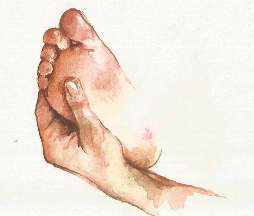What is Podiatry?
Podiatry - Podology is a branch of health care which comes from a diploma of recognized institutes of higher education within the European Union.
A professional Podiatrist is a specialist, qualified in the prevention and treatment of conditions and malfunctions of the lower limbs.
A podiatrist deals with the following problems:
- Corns and bunions (callous)
- Sclerosis (hardening of the skin)
- Fungal infections
- Warts
- Ingrown toenail
- Inflammation of soft tissues
- Tendon disorders
- Ηeel spurs
- Heel and foot pain etc
Podiatrists also play a significant part in in the field of neural and musculoskeletal dysfunction, which is based on a clinical examination and an analysis of movement and walking using a digital plotter, a modern and technologically advanced system consisting of a special floor, a platform and a computer co-operation programme. Also the scientific manufacturing of anatomical, orthopaedic insoles, contribute to dealing with the morphological dysfunctions and conditions such as:
- Walking instability
- Over pronation
- Excessive supination
- Club foot
- Flat feet
- Flexible flatfoot
- High instep

The work of a podiatrist also includes the field of the diabetic foot as well as the prevention and the course of treatment for any complications and is undoubtedly a known fact within the international medical community.
Finally, according to the European scientific data, the podiatrist works directly with the following specialists: diabetes (endocrinologist), orthopaedic doctors, paediatricians, dermatologists, physiotherapists, rheumatologists, neurologists, angiologists, physiologists, physiotherapists, chiropractors, osteopaths, as well as sports coaches, dance instructors, gymnastics teachers, etc.


